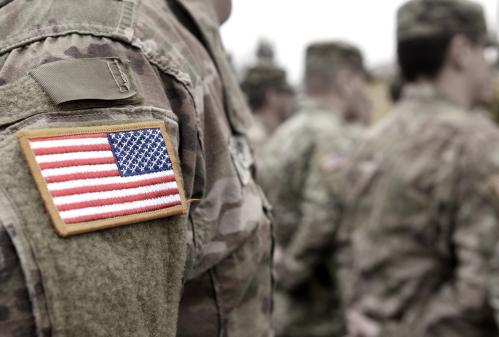Every day, the U.S. manages 14,000 open foreign military sales cases with 185 countries. Recent attempts by near-peer competitors to erode U.S. technological advantages has made security cooperation between the U.S. and these countries even more significant.
On June 4, Senior Fellow Michael O’Hanlon hosted Lieutenant General Charles Hooper, director of the Defense Security Cooperation Agency (DSCA), to discuss these dynamics and the role of the DSCA in supporting allies and promoting U.S. interests abroad.
O’Hanlon asked Hooper to discuss regional examples of DSCA’s approach to security cooperation. Hooper argued that American security cooperation with Colombia has been highly successful, as demonstrated by Colombia’s self-sustaining defense capability with U.S. assistance. More contentious regional topics include the sale of F-35 fighter jets to Turkey, weapon transfers to Saudi Arabia amidst the ongoing war in Yemen, and cooperation with the Afghan National Security Forces. With all three, Hooper acknowledged ongoing tensions. While the U.S. strives to achieve common security goals through partnerships with allies, there can be difficulty in guaranteeing that weapons are used responsibly. Despite this tension, Hooper underscored that the DSCA’s key objectives are strengthening alliances and attracting new partners, providing allies and partners with defense services and articles faster, and ensuring the consistent application of U.S. values.
At the end of the event, Lt. General Hooper took questions from the audience. You can watch the discussion here:
Research Intern Hannah Markey contributed to this post.
The Brookings Institution is committed to quality, independence, and impact.
We are supported by a diverse array of funders. In line with our values and policies, each Brookings publication represents the sole views of its author(s).





Commentary
Advancing U.S. interests through security cooperation
June 11, 2019